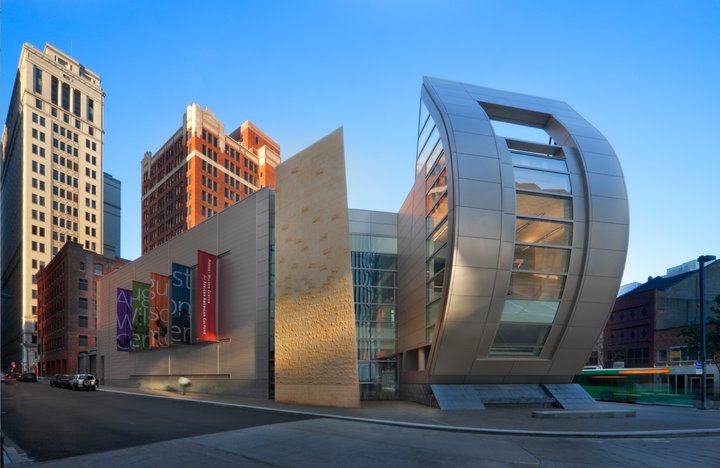PITTSBURGH: The high-stakes drama around the August Wilson Center—a multi-arts cultural center named for one of Pittsburgh’s proud native sons, upon which great hopes were once pinned but which had been written off as an abject failure after just five years in operation—took yet another surprising turn today after what seemed like yet another setback.
On Monday it was announced that Dollar Bank, the holders of the delinquent mortgage for the center’s downtown building, had purchased the building in a sheriff’s sale—for a mere $1,912.50, seeming to scotch a recent settlement deal that would have allowed three local foundations—the Pittsburgh Foundation, the Heinz Endowments and the Richard King Mellon Foundation—to buy the center for $8.49 million, clearing it of all previous debts and liens going forward.
But a spokesman for the Heinz Foundation told American Theatre today that a deal had been reached with Dollar Bank, and that the center is, at last, in the hands of the foundations. The decision marks the end of an arduous struggle for control of the center, in which a New York developer’s bid to buy the property and build a hotel there—with a vestigial August Wilson Theatre somewhere inside—was fought by a consortium of funders and local activists. The announcement of the original settlement made it look like a promising second act for the troubled center was about to begin; now, at last, it appears that it will.
“This was harder than I ever expected it to be,” said Grant Oliphant, president of Heinz Endowments, in an interview last week. “I really expected the community to rally more around the center. Initially there was less will to save it, and a lot of it had to do with a sense that the thing had failed, it was going to go away. It took people a while to believe it could be saved.”
Oliphant credited the turnaround to a vigorous reengagement with the community, and in particular to the advocacy of Pittsburgh’s mayor, Bill Peduto, and county executive Rich Fitzgerald (these same players were credited today with helping to reverse the results of this week’s sheriff’s sale).
Another key player was the August Wilson Center Recovery Committee, led by another local funding leader, Janera Solomon, executive director of the Kelly Strayhorn Theater. Solomon formed the committee, she said, because she “felt compelled to organize some process by which people in the community could participate in conversations about the center. The media here locally, and the entire conversation, centered on the building and the fact that it was being foreclosed on by the bank. All the talk was financial and legal; I didn’t hear any talk about the cultural mission.”
The center’s original mission was ambitious, perhaps overly so: In 2010, a year after opening, it had a resident theatre company, a dance company and a jazz orchestra, while also administrating the building. Though Oliphant said that the vision going forward is to make the center a “dynamic place that is constantly in use,” it won’t be the job of one organization to keep all the balls in the air.
“One of the lessons we learned from the first iteration is that having an organization that is responsible for a huge public building and for an arts program in it is maybe a stretch,” he said. So the rebooted center will be two nonprofits with their own separate boards: one to manage the building, and one to program the arts.
The latter will pick up on recommendations from Solomon’s committee to honor the late playwright as “an iconic Pittsburgher” while continuing to present a variety of African-American arts at the center, which boasts a 486-seat theatre, galleries and multiuse studios.
“We began our process with a set of questions: What is August Wilson’s role, what should it mean?” said Solomon. “It always felt like sort of an add-on, his spirit and his legacy—some people didn’t feel it there.”
One thing some did feel was an ugly undercurrent in talk about the center’s fortunes. “People talked about it as a sort of racial failure—like, that’s too big for black people to run,” Solomon said. “One thing about the settlement is that it signals that Pittsburgh is ready to embrace black culture, and all cultures, to be a world-class city.”
Oliphant anticipates another year or so of organization to get both nonprofits running and their boards in place. For now, as Solomon put it, “It’s really a new day.”


